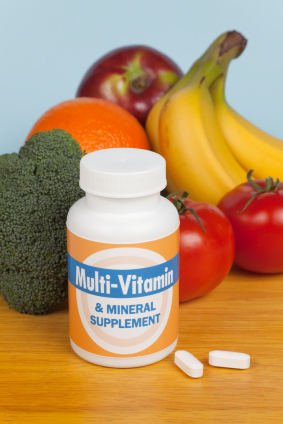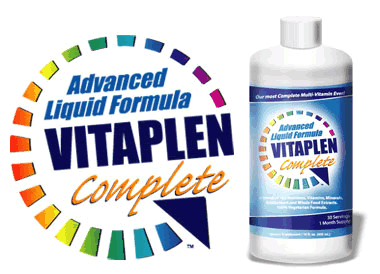Vitamin C (ascorbic acid)
Vitamin C (ascorbic acid)
By: Dr. George Obikoya
Vitamin C is a water soluble antioxidant vitamin that is capable of neutralizing potentially damaging free radicals. Vitamin C helps the white blood cells combat infection and is essential for wound healing. It is also required for the formation of collagen, for healthy skin, and for the formation of other structural materials in bones, teeth and capillaries. Vitamin C helps the absorption of iron from plant (non-animal) sources. Its deficiency manifests in poor wound healing, dry skin, broken thread veins, scalp dryness, irritability, and weakness.
People over 55, convalescents, those who consume large amounts of alcohol, those with active, busy lives, people with colds, smokers (as each cigarette destroys some vitamin C), persons exposed to excessive pollution, athletes and routine aspirin users all need to take supplementary vitamin C, preferably in a liquid multivitamin, or consume vitamin C containing foods.
Vitamin C produces Collagen, which is essentially the "adhesive" that holds your body together. It is the tissue that holds your muscles to your skeleton, your skin to your muscles, and keeps everything together. What does this mean to you? If Collagen will help heal sprained joints, broken bones, cuts, and other injuries, that translates to a better and faster muscle recovery after you workout.
Vitamin C is responsible for over 300 functions in your body, ranging from being the top anti-oxidant, producing collagen, keeping your immune system healthy, curing some male infertility problems, lowering blood pressure and relieving stress.
When you are not feeling well, when you are lethargic and all you want to do is just lie in bed all day, and don't even feel like your daily trip to the gym, vitamin C can help you get back on your feet because it boosts the immune system. Through this function, along with its antioxidant function, it may help in the prevention and treatment of infections and other diseases.
Slightly large doses (1-2 g/day) of vitamin C have been found to reduce asthma symptoms significantly. Recent studies have shown that vitamin C concentrations in the blood from rheumatoid arthritis patients are extremely low and that vitamin C may even protect against further damage to inflamed joints.
Vitamin C also helps prevent atherosclerosis by strenghtening the artery walls through its participation in the synthesis of collagen, and by preventing the undesirable adhesion of white blood cells to damaged arteries. An adequate intake of vitamin C through a liquid multivitamin is highly protective against stroke and heart attack.
Ascorbic acid may activate neutrophils, the most prevalent white blood cells that defend you against infections. It also seems to increase production of lymphocytes, the white cells important in antibody production and in coordinating the cellular immune functions. Hence, vitamin C may help you fight bacterial, viral, and fungal diseases.
Taken in higher dosages, ascorbic acid (another name for Vitamin C) may actually increase interferon production and thus activate the immune response to viruses; it may also decrease the production of histamine, thereby reducing immediate allergy potential. High levels of Vitamin C can, therefore, help you maintain good health and help cure common illnesses such as the common cold or flu type symptoms. Recent research evidence suggests that the combination of high doses of vitamins C and E helps prevent Alzheimer's disease but only at doses above the average dietary intake.
Vitamin C stimulates adrenal function and the release of norepinephrine and epinephrine (adrenaline), our stress hormones; however, prolonged stress depletes vitamin C in the adrenals and decreases the blood levels. It is, therefore, necessary for you to take additional vitamin C during periods of stress. Ascorbic acid also helps your thyroid gland to produce adequate quantities of its hormone. Vitamin C also aids in cholesterol metabolism, increasing its elimination and thereby assisting in lowering blood cholesterol.
Vitamin C has also been shown to reduce blood pressure. This is very useful if you suffer from high blood pressure and those taking anabolic steroids as they tend to have an elevated blood pressure due to side effects of their steroids.
The RDA of 60mgs is rather too low. Two-time Nobel prize winner, Dr. Linus Pauling was the first to realize vitamin C's crucial importance in the maintenance of a healthy immune system. In 1970 he proposed that regular intake of vitamin C in amounts far higher than the officially sanctioned RDA (Recommended Daily Allowance) could help prevent and shorten the duration of the common cold.
While the medical establishment promptly antagonized this idea, many ordinary people believed Dr. Pauling and began taking large amounts of vitamin C. Most immediately noticed a great decrease in the frequency and severity of their colds. Many Doctors and nutritionists suggest you take 500 mgs of vitamin C daily. You can take as much as 1000-2000 mgs of vitamin C when you have a cold or some other infections or you are feeling lethargic due to your immune system being weak.
Remember that Vitamin C is water soluble, so any extra will be washed out of your system daily. This, in fact, is another reason you take vitamin C daily, to replenish that lost in your urine. Also remember that some medicines can be affected by vitamin C so be sure to keep your doctor informed of any supplements you may be taking. Women on the contraceptive pill should not take excessively large doses of vitamin C at the same time of day as this may reduce the pill's effectiveness.
A good multivitamin is the foundation of health and nutrition. Take a look at our scientific reviews of many of the popular brands for factors such as ingredients, areas of improvement, quality level, and overall value. If you are looking for a high quality liquid multivitamin, we suggest that you take a look at the Multivitamin Product Comparisons.
VITAPLEN contains 150 mg of Vitamin C or 250% Recommended Daily Value and 165 scientifically formulated nutrients--all in a highly absorbable liquid formula.
References
1. Cardiovasc Drugs Ther 1998;12: 347-53.
2. Singh RB, Kartik C, Otsuka K, Pella D, Pella J. Coenzyme Q10 (CoQ10) Research Biomed Pharmacother 2002;56 Suppl 2:257s-265s
3. Watts GF, Playford DA, Croft KD, Ward NC, Mori TA, Burke V. Coenzyme Q10 improves endothelial dysfunction of the brachial artery in Type II diabetes mellitus. Diabetologia 2002 Mar;45(3):420-6


